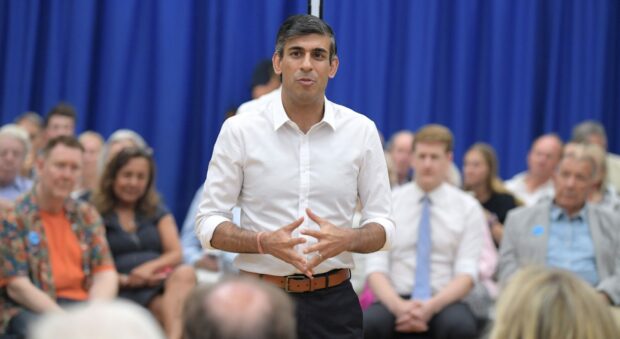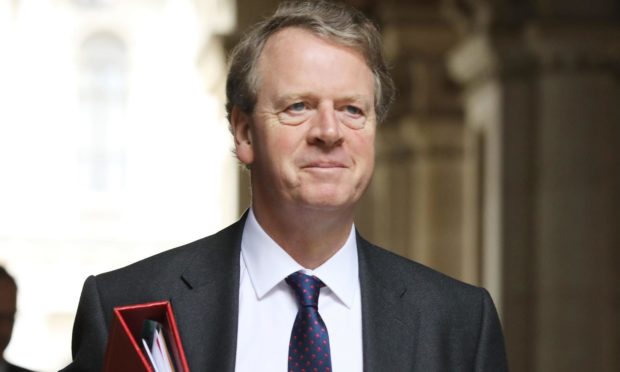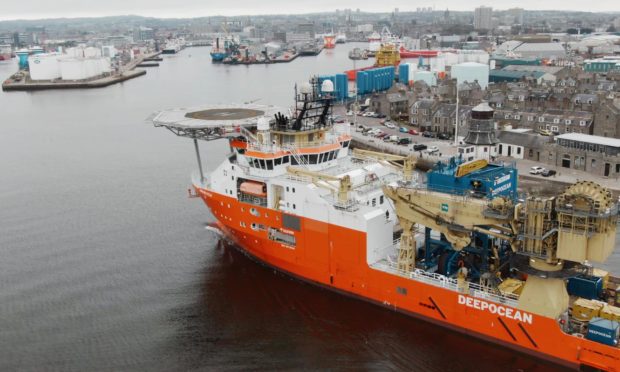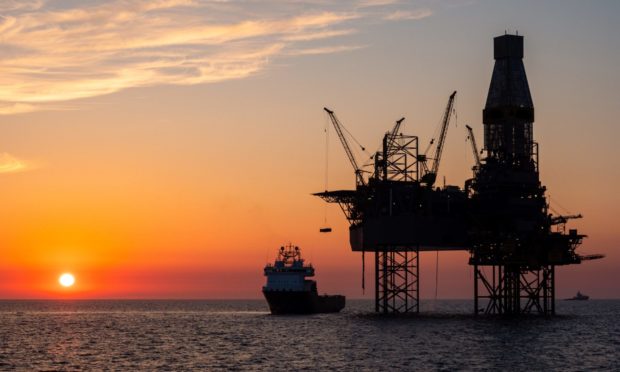Rishi Sunak has a mountain of work to do as he takes over as prime minister with the markets having been in meltdown and his party in disarray.
The former chancellor was poised to succeed Liz Truss at 10 Downing Street on Monday after rivals Boris Johnson and Penny Mordaunt withdrew from the contest.
The new prime minister will have to plug a massive budget black hole and try to rescue the Tory party from anticipated wipe-out at the next election.
The Conservative leader will also have some key decisions to make on Scotland.
We have taken a look at some of the most pressing issues.
1 – Will there be an IndyRef2 next year?
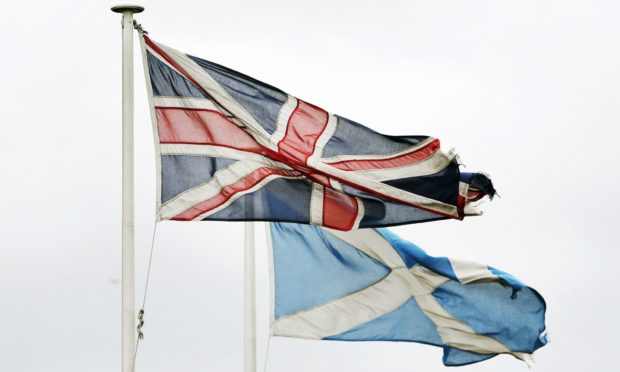
One of the first jobs of the new prime minister will be to agree the UK Government’s policy on a second independence referendum.
The SNP-Green government at Holyrood wants to hold a vote next year, but Tory ministers have insisted “now is not the time”.
The Supreme Court is currently considering whether MSPs have the power to arrange a referendum, without the consent of the Westminster government.
Whatever the verdict, the independence issue is not going away any time soon.
The new prime minister will also have to repair the damage caused in recent weeks to one of the key arguments for Scotland staying in the UK – the idea that the Union offers greater economic stability.
2 – Who is to be Scottish secretary?
Any decisions on UK Government policy towards Scotland are likely to be shaped by whoever is named Scottish secretary.
Prime ministers have recently tended not to change their secretary of state for Scotland very often, partly because it is a sensitive job, but also because of a lack of options.
Alister Jack was given the job by Boris Johnson in 2019.
He succeeded David Mundell, who had held the post for four years.
Mr Jack has been loyal to Mr Johnson in the past, but could be moved after Mr Sunak emerged with the keys to 10 Downing Street.
West Aberdeenshire and Kincardine MP Andrew Bowie is an enthusiastic supporter of Mr Sunak and could offer an alternative option.
Banff and Buchan MP David Duguid is another, having served as a junior minister in the Scotland Office.
3 – How can the Scottish Tories be revived?
In recent weeks, months and years, the Scottish Conservatives have been repeatedly left looking humiliated as a result of the conduct and decisions of their party leaders south of the border.
The U-turns of Douglas Ross on the future of Mr Johnson during the “partygate” scandal undermined his authority.
Now, the Scottish Tories who enthusiastically supported the premiership of Liz Truss, and then Kwasi Kwarteng’s disastrous mini-Budget, were left embarrassed when both were quickly overturned.
Most of the parliamentary party north of the border will have been hoping for a fresh start under any leader who is not Mr Johnson.
They will also be lobbying for more help from the new prime minister to bolster their fortunes, such as fresh investment or eye-catching initiatives.
4 – Which areas will host green freeports?
One looming investment decision for the new prime minister is to name the location of Scotland’s two green freeports.
An announcement was expected to have been made by now, revealing whether the north-east, Cromarty Firth, Orkney, Clyde or Forth would win the special low-tax designation from the UK and Scottish governments.
However, the process was thrown into confusion as a result of Mr Kwarteng’s mini-budget, which proposed the creation of new “investment zones” across the country.
It emerged that the Liz Truss government wanted all five Scottish freeport bidders to be turned into investment zones.
However, Ms Truss has now left Downing Street after just 44 days, and her investment zones plan is in doubt.
The new government will surely be able to quickly sign-off and announce the freeport locations.
5 – Will there be a new energy windfall tax?
When Mr Sunak was chancellor he announced a £5 billion windfall tax on North Sea oil and gas producers in May.
The move aimed to help fund a package of support for households struggling with the cost of living crisis.
It increased the headline rate of tax that UK oil and gas companies pay on their profits by 25%, taking the total figure to 25%.
However, a rise in the relief companies are able to claim against their investments was included to soften the blow.
Under pressure from opposition parties, Ms Truss was asked about the possibility of another windfall tax on North Sea energy producers after she took charge.
“I am against a windfall tax. I believe it is the wrong thing to be putting companies off investing in the UK, just when we need to be growing the economy,” she said.
But after the battering of Britain’s finances in recent weeks, the new prime minister could consider looking again at such a levy.
